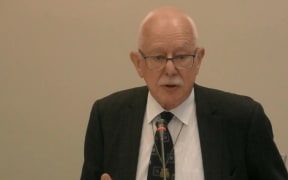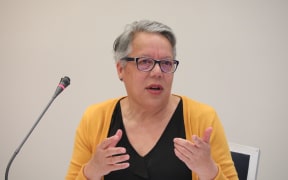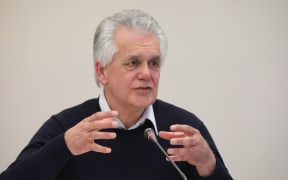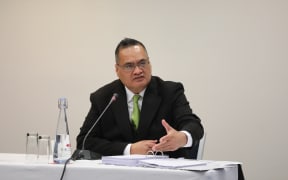by David Cohen*
Analysis: Whether intentionally or not, the first week of public "contextual" hearings in the Abuse in Care Royal Commission underscored how elusive it could yet be to find the ultimate context in which historical abuse occurred within the country's state-run residences for the young.

Photo: 123RF
The sessions at Auckland's Rydges hotel included testimony from an array of witnesses offering explanations variously drawn from hard-scrabbled first-hand experience on the inside or else second-hand perspectives gleaned from research and pondered over in faculty lounges.
Not surprisingly, one of the most compelling narratives came early on from career criminal Arthur Taylor.
Mr Taylor, 63, reflected on his early years as a ward of the state, beginning with his forced relocation from Masterton to the Epuni Boys' Home in Lower Hutt.
He told the commission, he could say "without a shred of doubt" that he never would have gone on to accumulate more than 150 convictions and spend most of his life behind bars.
Abuse was rife. While he said he did not personally suffer sexual wrongdoing, his ability to respond to authority was effectively shattered. He believes this effectively set the shambolic scene for his subsequent life.
During his time inside, Mr Taylor has also been struck by how many inmates have a roughly similar background.
Today he believes these other former wards could benefit from procedural changes in how they are dealt with in 2019, although what this might best achieve seemed a bit vague - a common issue in a week that was longer on descriptions of the bad old days rather than prescriptions for the good new days.
Rawiri Waretini-Karena, a lecturer and postdoctoral researcher, also offered a compelling personal account drawn from his own turbulent years as a ward ricocheting around different institutions and makeshift homes.
Like Mr Taylor, he alluded to the "prison pipeline", the cultural needle that ran from these old institutions to today's jail cells, threading together the inmates of each as dependably as degrees from the best law schools will ineluctably show up in most staff member resumes at the country's best law firms.
The soft-spoken scholar homed in on the intergenerational legacy of the system for Māori, in particular, who accounted for at least half the kids who were processed in the 26 state-run institutions that operated around the country from the 1950s through until around 1990.
Dr Waretini-Karena himself would later spend 11 years in jail for killing a man.
Brigit Mirfin-Veitch, the director of the Donald Beasley Institute, an independent charitable trust with a particular emphasis on intellectual disabilities, talked about the practical problems of deinstitutionalisation.
Dr Mirfin-Veitch has been actively involved in this area since 2007. Her research to date has involved only a smaller number of former wards. Nevertheless, her account of how young people with special-needs fared within the old system sounded like what many still put up with today.
Inadequate staffing, lack of general expertise and inattention to social needs were the order of the day - and still are.
What may have changed somewhat for the better was the "inescapable and unchallenged reality" of sexual abuse. But of course sexual impropriety is just one form of abuse; there are others that do not make for quick headlines but weave their own lifelong spell, too.
Colonisation and politics
Other testimonies were flecked with ideological asides and politics.
Sir Kim Workman, for example, gave evidence about his early experience as a police youth aid officer in the 1970s.
Sir Kim told the panel that the conditions he observed at institutions such as Kohitere, a so-called long-term training facility for boys set amid rolling countryside near Levin, were "so inhumane that they were almost guaranteed to turn vulnerable children and youth into scarred, distrusting and sometimes dangerous adults".
He went on to criticise aspects of the National Party's recently released welfare discussion document. This seemed slightly at odds with the inquiry's overriding aim of sorting out a true historical record of a system that was maintained over many decades by governments led by both major parties.
It could be argued that some of the most glaring systemic issues of the past, in particular, the departmental switch from education to social welfare that took place in the early 1970s, were overseen by Labour.
For the prominent Māori lawyer Moana Jackson, "inherently abusive" global issues of colonisation rather than partisan local politics supplied the rubric under which the earlier system should best be understood.
Mr Jackson took aim at the arbitrary historical practice of taking Māori youngsters from their homes and placing them in these large institutions, which by the 1970s had a similarly depressing ratio of Māori to non-Māori as most of the country's prisons still do.
On the other hand, anyone who has read John A Lee's brutal accounts of the system that predated the state-run residences currently under scrutiny would also know that "colonialism" could not have been the only factor at play: places such as Burnham Industrial School, where Lee was sent in 1906, housed almost exclusively non-Māori wards.
Among the others who gave testimony in the first week of public hearings were retired judge Carolyn Henwood, researchers Alison Green and Hilary Stace, erstwhile ward Keith Wiffin and former RNZ reporter Aaron Smale.
The testimony to date can easily be accessed by way of the commission's website. Accessing its ultimate context and meaning, however, still remains an arduous work in process.
*David Cohen is a Wellington-based journalist and author of Little Criminals: The Story of a New Zealand Boys' Home. He is supplying regular analyses of the Abuse in Care Royal Commission for RNZ.







